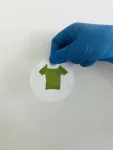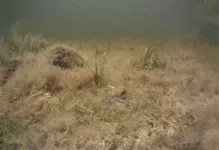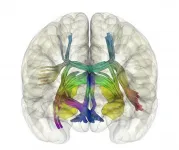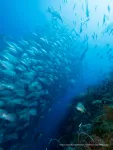Empowering citizens for successful energy transitions
2021-05-03
(Press-News.org) The terms "co-creation" and "co-production", which denote the possibility for laypeople to participate in decision-making processes that affect their lives, have been gaining popularity. A new IIASA-led study explored options for empowering citizens as a driver for moving from awareness about the need to transform energy systems to action and participation.
The European Union's climate and energy policies for 2020-2030 require decarbonization of the energy sector. To this end, EU member countries are working on a number of key goals including greater energy efficiency, greater use of renewable energy, and increased energy security across the EU. The successful implementation of policies that support the achievement of these goals might lead not only to a transformation of energy systems, but also to socioeconomic transitions, and will depend on economic and technical factors, as well as behavioral aspects such as people's attitudes towards such a transition.
In their study published in the journal Energy Policy, IIASA Cooperation and Transformative Governance Research Group Leader, Nadejda Komendantova and colleagues, explored the potential for polycentric governance - a system that comprises multiple centers of decision making and co-production at different levels. In such a system, energy becomes a common good rather than a private or a public one. Polycentric governance presents opportunities for the co-production of energy policy by various stakeholder groups. The study specifically considered existing attitudes towards renewable energy sources among the residents of two so-called Climate and Energy Model (KEM) regions in Austria, their level of awareness about policy interventions for an energy transition, and their willingness to participate in decision-making processes.
"Emerging technologies and changing attitudes towards energy generation, transmission, and distribution create various options that facilitate participation in energy transitions. The emergence of distributed energy systems, which might lead to polycentricity in the governance of such a transition, also creates a need to reframe the discourse from social acceptance of certain technologies, towards engagement, and from focusing on particular technologies, to a focus on social innovations and new forms of governance," explains Komendantova. "This approach is not about providing information and educating the public; it is about listening to people and providing them with a variety of options and alternatives to make choices about services that affect their communities."
While both KEM regions (Freistadt and Amstetten) have committed to including a high degree of renewable energies (up to 100%) in their energy mix and have set ambitious goals to achieve this, one region already had a system in place that allowed citizens to participate in decisions concerning the energy transition in their region, while the other did not. The researchers conducted a large-scale survey that included around 2,000 respondents, who were representative of all social groups in these two regions, and found that the ability to participate in decision-making processes actually increased trust in both the process and decision makers among the respondents. The findings further indicate an increase in the level of awareness about energy transitions and a willingness to pay up to 10% more for electricity from renewable energy sources when they have the option to get involved in decisions around this. Interestingly, having the option to participate did not increase the number of people who actually participated in decision-making processes on energy transition, but having the option to participate increased the level of trust towards policymakers who implement energy transition.
According to the researchers, the willingness of respondents to use renewable energy sources is driven to an equal extent by concerns about climate change and the consideration that renewable energy sources can help them to become less dependent on energy providers. In this regard, the researchers point out that this would not necessarily mean that people produce their own energy, for instance, using residential solar panels, but rather that renewable energy is produced in their own region, which avoids the need to import it from elsewhere.
The study also found that the majority of people who would like to participate in decision-making processes would also like to participate in the process of selecting the technology or the site for the renewable energy project, while participating in financing the projects is the least desirable option.
"When people indicated that they were not willing to participate in decision-making processes, this was mainly because they felt they didn't have adequate information or time. The number of people who didn't want to participate because they thought that participation is not important was minor. Overall our results confirmed the willingness of people to participate, but conditions for participation should be created," Komendantova notes.
To facilitate participation among citizens in regions aiming to transition to sustainable energy systems, the researchers recommend that targeted information campaigns are created and communicated via trusted media channels to inform residents about projects that affect them. There is also a need to better understand the role of emerging information channels such as social media in energy transition, as well as other digital options that are emerging to increase the willingness of stakeholders to actively take part in the energy transition and address concerns about existing conditions.
INFORMATION:
Reference
Komendantova, N., Neumueller, S., & Nkoana, E. (2021). Public attitudes, co-production and polycentric governance in energy policy. Energy Policy DOI: 10.1016/j.enpol.2021.112241
Contacts:
Researcher contact
Nadejda Komendantova
Research Group Leader
Cooperation and Transformative Governance Research Group
Advancing Systems Analysis Program
Tel: +43 2236 807 285
komendan@iiasa.ac.at
Press Officer
Ansa Heyl
IIASA Press Office
Tel: +43 2236 807 574
Mob: +43 676 83 807 574
heyl@iiasa.ac.at
About IIASA:
The International Institute for Applied Systems Analysis (IIASA) is an international scientific institute that conducts research into the critical issues of global environmental, economic, technological, and social change that we face in the twenty-first century. Our findings provide valuable options to policymakers to shape the future of our changing world. IIASA is independent and funded by prestigious research funding agencies in Africa, the Americas, Asia, and Europe. http://www.iiasa.ac.at
ELSE PRESS RELEASES FROM THIS DATE:
2021-05-03
In recent decades, Spain has undergone rapid social changes in terms of gender equality, despite, as a result of the Franco dictatorship, starting from a more backward position than most European countries. This process is hampered by the economic downturn that began in 2008, underlining the importance of the economic context in the development of gender inequality levels. Little attention has been paid in academia to how this gender revolution is associated with factors related to individual wellbeing.
A study by Jordi Gumà, a researcher at the Department of Political and ...
2021-05-03
The human world is, increasingly, an urban one -- and that means elevators. Hong Kong, the hometown of physicist Zhijie Feng (Boston University),* adds new elevators at the rate of roughly 1500 every year...making vertical transport an alluring topic for quantitative research.
"Just in the main building of my undergraduate university, Hong Kong University of Science and Technology," Feng reflects, "there are 37 elevators, all numbered so we can use them to indicate the location of hundreds of classrooms. There is always a line outside each elevator lobby, and if they are shut down, we have to hike for 30 minutes."
Feng and Santa Fe Institute Professor ...
2021-05-03
Myotonic dystrophy is a hereditary degenerative neuromuscular disease that occurs mainly in adults, affecting about 50,000 people only in Spain. Symptoms range from difficulty walking and myotonia (great difficulty in relaxing the contracted muscles) to severe neurological problems, leading to progressive disability that unfortunately puts many of those affected in a wheelchair. This disease is very heterogeneous among patients (age of onset, progression, hereditary transmission, affected muscles), which makes the development of generic treatments especially complex.
Currently, drugs against myotonic ...
2021-05-03
LAWRENCE -- Like much of society, college athletics were thrown into disarray by the COVID-19 pandemic. While student athletes were suddenly prevented from competing, training or seeing as much of their teammates and coaches, those who perceived they were part of a positive sporting environment also coped better during the early days of the crisis, a new study from the University of Kansas has found.
KU researchers have long studied a caring, task-involved sporting climate, in which young athletes receive support and recognition for their efforts, while mistakes are treated as learning opportunities. But the pandemic provided a unique opportunity to see whether the approach helped collegiate athletes cope with the unique stresses and challenges that came with the disruption ...
2021-05-03
Social media may make it easier for people to engage online, but I does not provide certain benefits of real-life human interactions, says a Michigan State University researcher.
"Problematic social media use has been associated with depression, anxiety and social isolation, and having a good social support system helps insulate people from negative mental health," said Dar Meshi, an assistant professor in the Department of Advertising and Public Relations at MSU. "We wanted to compare the differences between real-life support and support provided over social media to see if the support provided over social media could have beneficial effects."
The research was published online April 29 in the journal Addictive Behaviors.
While ...
2021-05-03
Living materials, which are made by housing biological cells within a non-living matrix, have gained popularity in recent years as scientists recognize that often the most robust materials are those that mimic nature.
For the first time, an international team of researchers from the University of Rochester and Delft University of Technology in the Netherlands used 3D printers and a novel bioprinting technique to print algae into living, photosynthetic materials that are tough and resilient. The material has a variety of applications in the energy, medical, and fashion sectors. The research is published in ...
2021-05-03
Nearly 10,000 acres of lush seagrass vanished from Florida Bay between 1987 and 1991, leading to massive ecological changes in the region near the Florida Keys. Abundance of the seagrass, Thalassia testudinum, more commonly known as turtlegrass, a foundation species of the Florida Bay ecosystem, decreased extensively during what is considered to be one of the largest declines in seagrass cover in recent history.
Researchers from the University of South Florida, the Florida Fish and Wildlife Conservation Commission (FWC) and the University of North Carolina Wilmington documented the response of seagrasses after the die-off. ...
2021-05-03
31 percent of pet dogs and 40 percent of pet cats tested positive to COVID-19 after their owners' own diagnoses, though under half displayed symptoms, in small Brazilian study.
INFORMATION:
Publicly available article: https://journals.plos.org/plosone/article?id=10.1371/journal.pone.0250853
Article Title: Investigation of SARS-CoV-2 infection in dogs and cats of humans diagnosed with COVID-19 in Rio de Janeiro, Brazil
Funding: MMS: This study was supported by CGLab/MoH (General Laboratories Coordination of Brazilian Ministry of Health), CVSLR/FIOCRUZ (Coordination of Health Surveillance and Reference Laboratories ...
2021-05-03
Thanks to the so-called deep learning, a subset of artificial intelligence (AI) algorithms inspired by the brain, machines can match human performance in perception and language recognition and even outperform humans in certain tasks. But do these synthetic biologically inspired systems learn in the same way that we do?
According to a new article by first author Dr. Diogo Santos-Pata from the Synthetic Perceptive, Emotive and Cognitive Systems lab (SPECS) at IBEC led by ICREA Professor Paul Verschure, in collaboration with Prof. Ivan Soltesz at Stanford University, the mechanism of autonomous learning underlying these AI systems reflects nature more closely than previously thought. With their hypothesis and model, these scientists offer new insights into ...
2021-05-03
A world first study within the Great Barrier Reef Marine Park has found limited fishing zones (yellow zones) are still important conservation and fisheries management tools when paired with no-fishing zones.
Lead author Dr April Hall, from the ARC Centre of Excellence for Coral Reef Studies at James Cook University (Coral CoE at JCU), said partially protected yellow zones still contain healthy numbers of reef fish targeted for recreational and commercial fishing. These include coral trout, tropical snappers, emperors and tuskfish.
Yellow zones limit, rather than prohibit, fishing through fishing gear restrictions. For example, limited line fishing is allowed with one rod or line and one hook per ...
LAST 30 PRESS RELEASES:
[Press-News.org] Empowering citizens for successful energy transitions




